Common Pet Eye Issues: Understanding and Prevention
Eye health is a crucial component of your pet’s overall well-being, yet it is often overlooked until significant problems arise. At Animal Hospital Southwest, we emphasize the importance of proactive eye care to identify and treat issues before they impact your pet’s quality of life. In this comprehensive guide, we dive into common eye issues pets face, offering insights into symptoms, treatments, and preventative measures from both a veterinary and pet owner perspective.
Overview of Common Pet Eye Issues
Pets, like humans, can suffer from various eye conditions, some of which can cause serious discomfort or even vision loss if left untreated. Understanding these conditions is vital for timely intervention:
- Conjunctivitis: This inflammation of the conjunctiva, the tissue covering the eye, can lead to redness, itching, and discharge. It may result from infections, allergies, or irritants.
- Cataracts: Characterized by a clouding of the lens, cataracts cause impaired vision and can lead to blindness if not addressed. They may be age-related or genetic and are often seen in breeds such as Cocker Spaniels and Poodles.
- Glaucoma: This condition results from increased intraocular pressure, causing pain and rapid vision loss. Without treatment, it can lead to irreversible blindness. Breeds like Basset Hounds and Beagles are particularly susceptible.
For more detailed information on these conditions, you can visit the American College of Veterinary Ophthalmologists’ Common Conditions page.
Medical Insights: Causes, Diagnosis, and Consequences
Causes and Recognition
Pet eye conditions can arise from various factors, including genetics, environmental allergens, infections, or injuries. Recognizing symptoms early, such as discharge, redness, cloudiness, or behavioral changes like pawing at the eye, is crucial to prevent long-term damage.
Diagnosis and Treatment
Diagnosis typically involves a comprehensive eye examination, possibly including specialized tests like tonometry for glaucoma or slit-lamp examination for cataracts. Treatment varies depending on the condition:
- Conjunctivitis: May require antibiotics or anti-inflammatory medications. In allergic cases, identifying and removing the allergen is paramount. To learn more about allergic conjunctivitis, you can refer to Veterinary Partner’s Allergic Conjunctivitis in Dogs and Cats
- Cataracts: Often necessitate surgical intervention, especially if they significantly impair vision. Post-surgical care is critical for successful recovery.
- Glaucoma: Treatment can include medications to reduce intraocular pressure or surgery in severe cases. Regular monitoring is essential to manage the condition effectively.
Failure to treat these conditions can lead to chronic pain, behavioral changes, and permanent vision loss, significantly affecting your pet’s quality of life.
Prevention and Emergency Situations
Prevention and Breed Predispositions
Preventative care is key, especially for breeds predisposed to eye issues, like Bulldogs or Persians. Regular cleaning of your pet’s eyes and maintaining a dust-free environment can help prevent conjunctivitis. For tips on how to clean your pet’s eyes, check out this helpful article by the ACVO.
Emergency Situations
An eye emergency might involve sudden blindness, severe pain, or noticeable swelling. In such cases, immediate veterinary attention is vital. Do not attempt home remedies that could worsen the condition. Contact us during business hours if you suspect your pet is experiencing an eye emergency, or a local 24/7 animal hospital if the incident occurs after-hours.
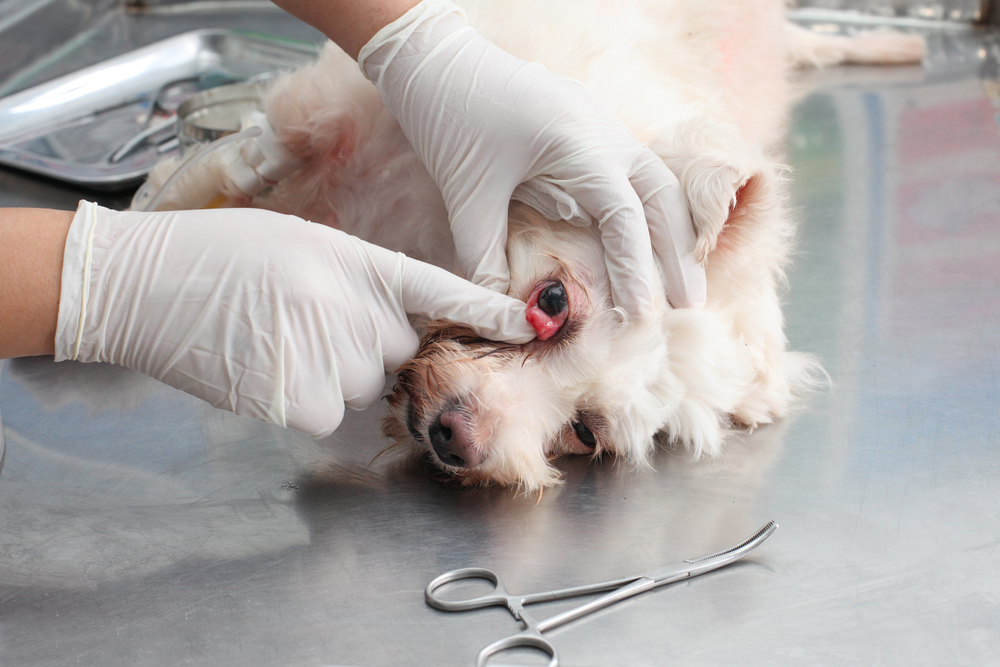
At-Home Care and Tips
Home Care Tips
Pet owners can contribute significantly to their pet’s eye health through regular home care:
- Perform routine inspections of your pet’s eyes for any changes.
- Use vet-recommended saline solutions to gently clean around the eyes.
- Ensure your pet avoids exposure to irritants like smoke or harsh chemicals.
FAQs and How-To Guides
- How can I tell if my pet is in pain due to an eye issue? Look for signs like squinting, rubbing the eye, or changes in behavior such as lethargy or aggression.
- What should I do if my pet’s eye condition doesn’t improve? Seek veterinary advice promptly to avoid complications. Contact our team to see what the best next steps should be for your pet.
Importance of Veterinary Care
Regular veterinary check-ups are essential for early detection and management of eye issues. Eye health is an integral part of your pet’s overall well-being. Recognizing symptoms early, understanding potential causes, and seeking timely treatment are crucial steps in managing eye health issues. At Animal Hospital Southwest, we are committed to delivering exceptional care for your pet’s eyes.
If you have concerns about your pet’s eye health or it’s time for their regular check-up, contact us to schedule a comprehensive examination. For more pet care tips, explore the rest of our Blog.

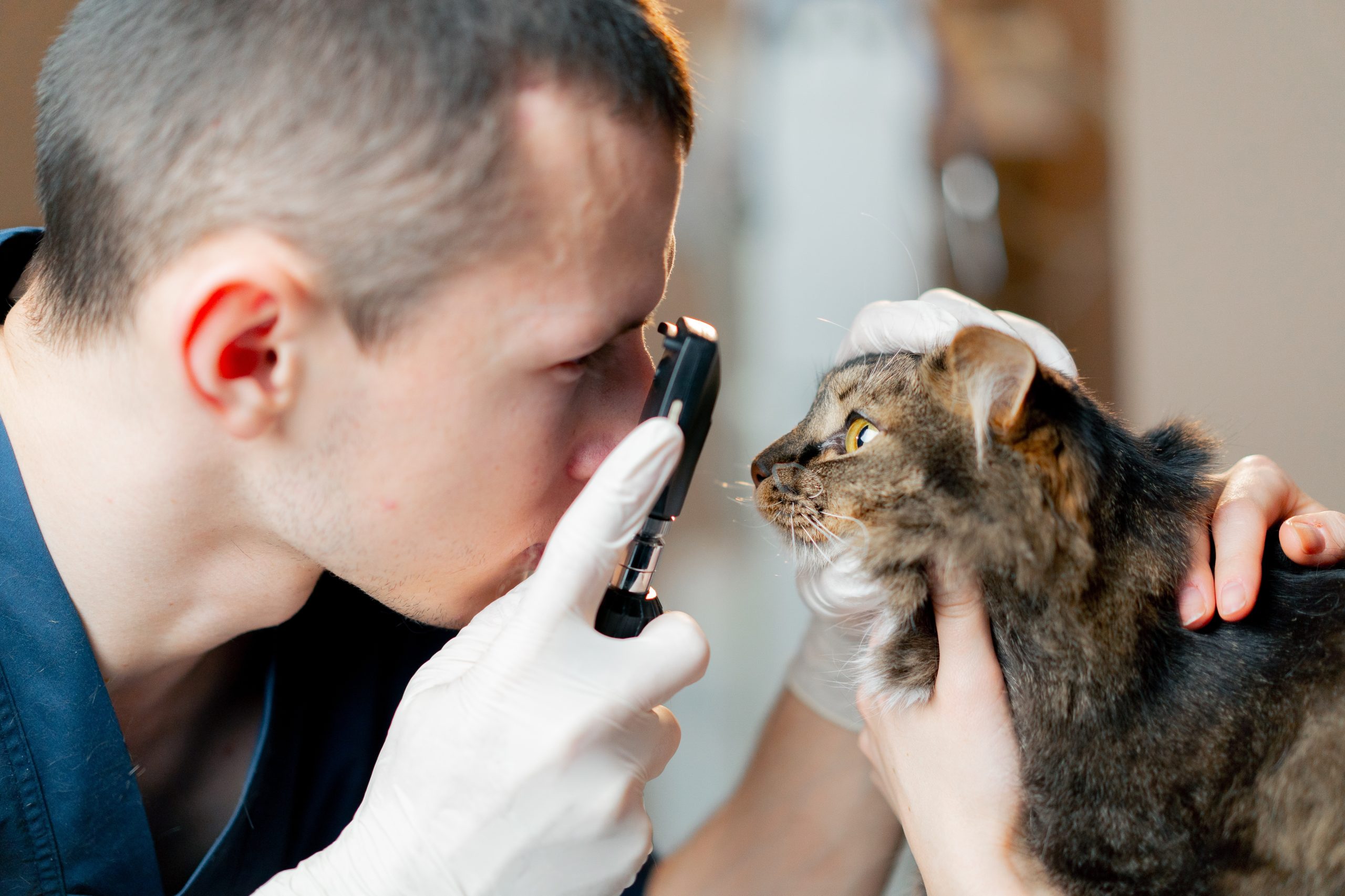
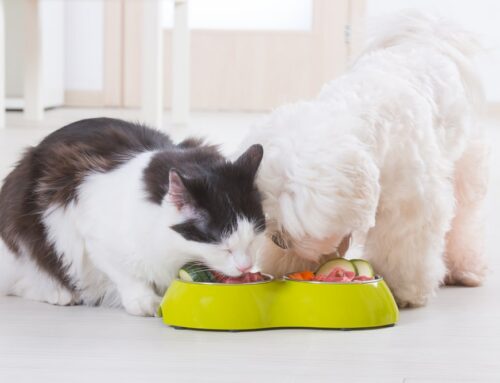
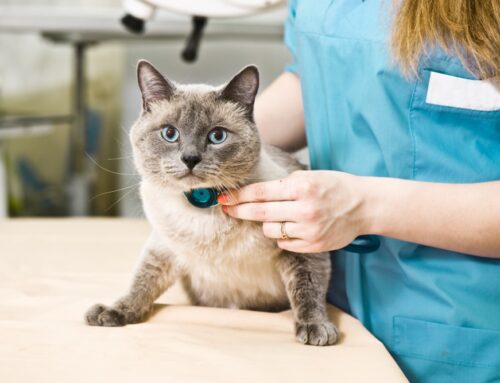
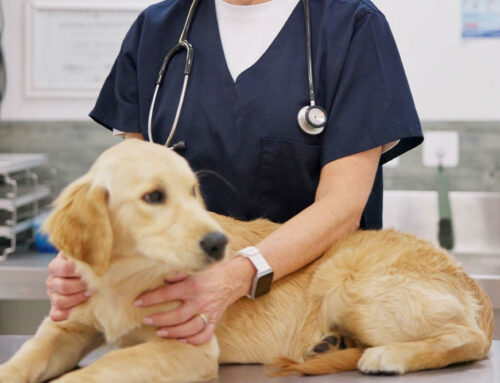

Leave A Comment